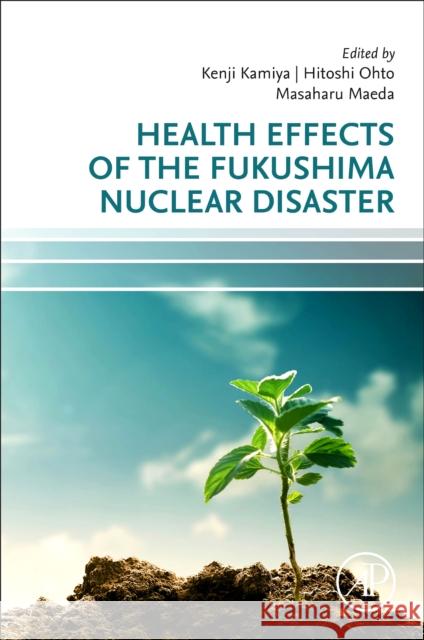Health Effects of the Fukushima Nuclear Disaster » książka



Health Effects of the Fukushima Nuclear Disaster
ISBN-13: 9780128240984 / Angielski / Miękka / 2022
Health Effects of the Fukushima Nuclear Disaster
ISBN-13: 9780128240984 / Angielski / Miękka / 2022
(netto: 550,41 VAT: 5%)
Najniższa cena z 30 dni: 570,87
ok. 30 dni roboczych.
Darmowa dostawa!
I. Introduction
II. Development of Fukushima disaster
III. Physical issues 1. Initial turmoil in emergency medical settings 2. Radiation dose after the disaster 3. Thyroid cancer and related issues 4. Radiological influence on pregnancy 5. Lifestyle related diseases caused by long-term evacuation 6. Health effects of A-bombing in 1945: lessons from epidemiological studies
IV. Psychosocial issues 7. Posttraumatic responses and related issues 8. Suicide-related issues among affected people 9. Alcohol-related issues among affected people 10. Psychological influence on affected children in Fukushima 11. Mental health issues among aged people 12. Mental health issues among people having thyroid tumor 13. Risk perception and related issues 14. Influence of different Media, producing stigma 15. Crisis and resilience of local communities 16. Psychosocial issues caused by Fukushima disaster: comparative perspective with Chernobyl accident
V. Mitigation of Psychological Health Issues 17. Mental health care for young mothers and their children 18. Telephone intervention 19. Community-based care in Kawauchi Village 20. Psychiatric treatments in clinical settings 21. Psychological care for TEPCO workers
Dr. Kamiya graduated from Hiroshima University School of Medicine in 1977, where he also completed a PhD in Experimental Pathology in 1986. From 1982 to 1987, he held a research appointment at the University of Wisconsin-Madison. After joining Hiroshima University's Research Institute for Radiation Biology and Medicine, he worked to advance radiation biology, radiation carcinogenesis, and radiation emergency medicine. In 1996, he became a Professor at Hiroshima University, and served as Director of the Research Institute for Radiation Biology and Medicine from 2001 to 2005 and 2009 to 2013. He has served as Director of the Radiation Emergency Medicine Promotion Center since 2004 and Vice President of Hiroshima University since 2013. Following Fukushima's 2011 nuclear accident, he was appointed as a Vice President of Fukushima Medical University, while serving concurrently as a radiation health risk management advisor to the Fukushima Prefectural Government, as well as working as an advisor to the Cabinet Secretariat's Advisory Group on Nuclear Disasters. In 2016, he became Director of the Radiation Medical Science Center for the Fukushima Health Management Survey at Fukushima Medical University. In 2009, he received the Asian Association of Radiation Research Award, and was awarded the Prime Minister's Commendation to Contributors for Disaster Prevention in 2012. In 2020, he received the Japanese Radiation Research Society's JRRS Outstanding Contribution Award, among other awards. He served as President of the Japanese Radiation Research Society (2008-2011), Secretary General of the 15th Annual International Congress on Radiation Research (ICRR2015), and as a member of the Science Council of Japan and a chairman of the board for The Nuclear Regulation Authority's Radiation Council. Professor Emeritus Ohto is General Vice President of Fukushima Medical University (FMU). He graduated from FMU (MD) in 1977 and finished PhD thesis of medicine in 1984 at the University of Tokyo. His research focuses chiefly on fetomaternal micro-transfusion and its consequences to mother and child, including transmission of pathogens and alloimmune responses. He has studied mother-to-infant transmission of hepatitis viruses, and infantile and maternal microchimerism during and after pregnancy. He has contributed to world-wide transfusion safety initiatives, especially the prevention of transfusion-associated graft-versus-host disease, which is uniformly fatal, by introducing universal irradiation of cellular transfusion components at FMU in 1989, first in the world. He guest edited a collection of articles with the theme "Disasters and Transfusion in an international journal. He has published more than 200 peer-reviewed scientific papers in international top journals. He is currently serving in the Fukushima Health Management Survey as General Vice Director. Professor Maeda is Professor and Chair of the Department of Disaster Psychiatry at the Fukushima Medical University School of Medicine in Fukushima, Japan. Professor Maeda received his medical degree at Kurume University School of Medicine, Fukuoka, Japan, and completed his residency training in psychiatry at Kurume University Hospital. He later returned to his alma mater in 1996 as Associate Professor, before assuming his current roles. Professor Maeda served as President of Japanese Society of Traumatic Stress Studies from 2009 to 2013. He has been actively involved in providing psychiatric examinations and organizing psychiatric intervention teams for survivors of several major disasters that have occurred in Japan, particularly man-made disasters. Professor Maeda's current clinical and research interests lie in the widespread psychosocial effects resulting from the Fukushima nuclear accident. As Assistant Manager of the Fukushima Center for Disaster Mental Health, he is leading the Mental Health and Life Style Survey to facilitate the adequate care of resident who are at risk of developing mental health problems following the complicated nuclear accident.
1997-2026 DolnySlask.com Agencja Internetowa
KrainaKsiazek.PL - Księgarnia Internetowa









